Debate: Intern Culture
Wednesday 17 October 2012, 6.30–8.30pm
The debate on fees and payments for internships is as topical as ever, as interns complain of exploitation and organisations seek ways to continue and extend programming on limited resources. At their best, internships provide opportunities to extend networks, gain valuable training and earn money; but some organisations rely on interns to operate, sometimes transgressing National Minimum Wage legislation.
With no legal definition of an internship, how can interns and visual arts organisations ensure quality experiences and stay within the law? In recent years, lengthy (and sometimes full-time) unpaid or expenses-only internships have replaced low-paid entry-level jobs across the visual arts, with guidelines published by Government, public funders, think tanks, industry bodies and artist-led groups, creating as much confusion as clarity for interns and their employers. At the same time, organisations like W.A.G.E. in New York, and Intern Aware and The Precarious Workers Brigade in the UK, have been active in making workers aware of their rights, with some helping former interns claim back wages from former employers. Despite this activity, many established and respected arts organisations continue to run low- or no-pay internships: still highly sought after entry points to the sector, even when hopes of a paid job frequently fail to materialise.
To add to the debate and research best practice, Artquest commissioned Intern Culture, a literature review of 23 reports, guidelines and policy documents published since 2008. Written by Dr Sophie Hope, the review presents how these sometimes conflicting and contradictory guides have served to inform – and confuse – organisations looking to hire interns, as well as interns themselves.
To celebrate the launch of the report, Artquest is chairing a debate at The Showroom during The Grand Domestic Revolution GOES ON, encouraging artists, arts professionals and representatives of art organisations to participate with their experience and opinions.
The panel is made up of Dr Sophie Hope, lecturer, researcher and author of Intern Culture; Russell Martin, artist and Artquest Programme Manager; Sarah Rowles, Director of Q-Art London and Tracey Smith, an artist working with socially-engaged practice. Both Sarah and Tracey worked as interns at Peckham Space. Writer Jessica Benson-Egglenton will also attend, using the debate as a basis for material to add to Artquest’s resources for interns.
This is an event to accompany the exhibition The Grand Domestic Revolution GOES ON.
Related
Workshop: Quintin Kynaston school and Annette Krauss
Event
Workshop: Quintin Kynaston school and Annette Krauss
Presentation of Futures Plan
Event
Presentation of Futures Plan
Read-in with Annette Krauss, Laura Pardo and Marina Stavrou
Event
Read-in with Annette Krauss, Laura Pardo and Marina Stavrou
Film screening with a women’s organisation
Event
Film screening with a women’s organisation
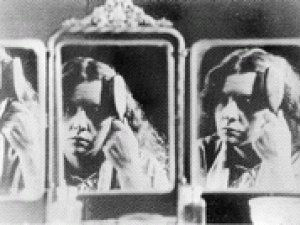
Event
Their workshop is the home: a Cinenova screening
GDR Reading Group
Event
GDR Reading Group
GDR Reading Group
Event
GDR Reading Group
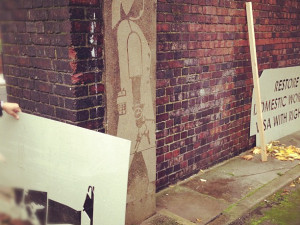
Event
ASK! cleaning action with Justice for Domestic Workers
Book Launch: Andrea Francke and Delta Arts
Event
Book Launch: Andrea Francke and Delta Arts
Workshop: Matthijs de Bruijne and Justice for Domestic Workers
Event
Workshop: Matthijs de Bruijne and Justice for Domestic Workers
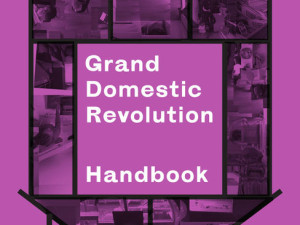
Event
Book Launch: Grand Domestic Revolution Handbook and Cluster
Church Street Neighbourhood Management Networking Lunch
Event
Church Street Neighbourhood Management Networking Lunch
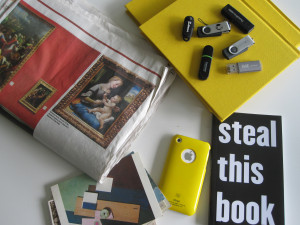
Event
Ownership in Question
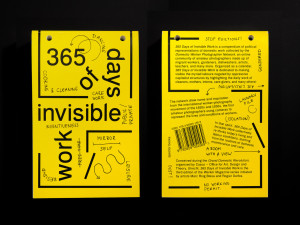
Event
365 Days of Invisible Work
, –
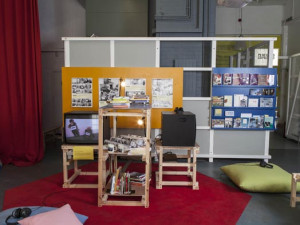
Event
The Reading Room

Exhibition
The Grand Domestic Revolution GOES ON
–
Film looking at The Showroom’s local work
Video
Film looking at The Showroom’s local work
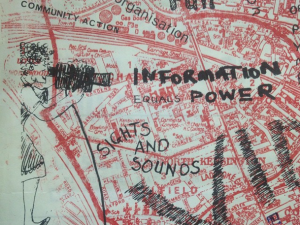
Text
The Reading Room